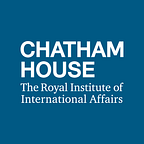Five Things You May Have Missed in the US and Americas This Week
There is rarely a quiet week in US politics under the Trump presidency, and this week has been no exception. Here are five important events in US domestic politics you may have missed this week.
(1) John Bolton begins his tenure.
John Bolton, President Trump’s new national security advisor (NSA), started his first day on the job in the White House on Monday as he succeeded H.R. McMaster in the role. Bolton - known for his hawkish worldview - comes in at a critical juncture with the administration mulling over strikes against the Assad regime in Syria, a withdrawal from the Iran nuclear deal, and direct talks with Kim Jong-un. The NSA is a key role in the White House, responsible both for advising the president and coordinating between the major foreign policy and security entities of the federal government.
(2) The office of Trump’s personal lawyer and confidant is raided.
FBI agents raided the office and hotel room of Michael Cohen, the president’s personal lawyer, business adviser and confidant. The raid was carried out based on tips originating from the Mueller investigation, but managed by a separate US Attorney’s office, and reportedly sought evidence related to separate matters, including payments made to bury potentially damaging stories about the president in the lead-up to the 2016 election — which might violate federal electoral law.
Cohen, as one of Trump’s closest confidants, is a critical figure who sits at the juncture of several major scandals surrounding the president, including the Russia investigation. The president tweeted that the investigation was a “TOTAL WITCH HUNT!!!” and that there was “No Collusion or Obstruction (other than I fight back)”.
(3) Paul Ryan resigns.
The Republican speaker of the House of Representatives announced he would retire at the end of his term in 2019, marking a shift in congressional politics. Ryan is an important ally in Congress for the president, despite their stand-offish relationship during the presidential campaign, and was crucial to the passage of the president’s tax cuts in December 2017.
The Republican Party now faces a contentious leadership race for Ryan’s replacement as it prepares for midterm elections this November. Ryan’s resignation increases the number of retiring Republican members of Congress this year to 46; the Democrats need to gain 24 seats to seize the majority in the House, which would allow them to exercise much more control over both the legislative and oversight agendas in Washington.
(4) The secretary of state-designate testifies to the Senate.
Mike Pompeo, President Trump’s nominee to replace Rex Tillerson as secretary of state, presented himself to the Senate Foreign Relations Committee on Thursday. Currently director of the CIA, Pompeo needs to convince committee members he is capable of becoming the United States’ top diplomat.
He argued that he favours diplomacy over conflict and views war as a last resort, while also stating his aim was to “fix” the Iranian nuclear deal and that he was open to working with international allies if this could not be achieved. Pompeo also claimed he has never advocated for regime change in North Korea as well as admitting war would be “catastrophic” and that he, along with other members of Trump’s administration, would work to prevent that.
(5) Trump’s stance on TPP may have shifted.
During his presidential campaign, Trump called the Trans-Pacific Partnership (TPP) “one of the worst trade deals” and “a rape of our country”, before fulfilling his promise to withdraw from the agreement on his third day in office and proclaiming the move as “a great thing for the American worker”. Then, late on Thursday, the president unexpectedly instructed his economic advisers to look into re-joining the agreement, but only if it was on “substantially better” terms than those agreed to by President Obama.
In the intervening time, the eleven other states in the agreement — now known as the Comprehensive and Progressive Agreement for Trans-Pacific Partnership — revised the original terms, but have expressed openness to the United States re-joining the deal. This change of direction happens within the context of increasing tensions over trade between the US and China, which was never a member of TPP. Trump’s openness to the deal now may be an attempt to alleviate the impact of any such trade war on American farmers, some of his strongest political supporters, as China’s proposed retaliatory tariffs would cause them serious economic harm.
